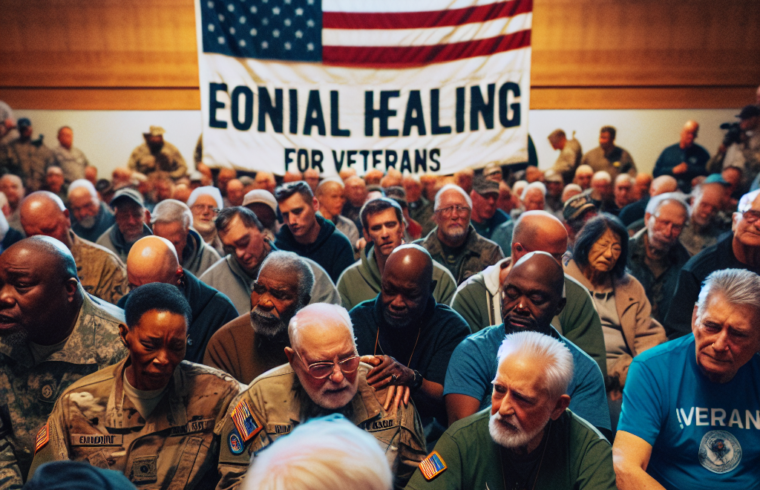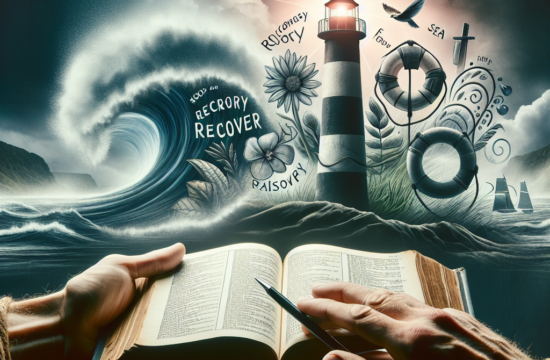==> Thank you for reading this post! Click Here If you are looking for support and Victory over PTSD.
Understanding the Importance of Emotional Healing
Why Emotional Healing Matters
From personal experience, I can’t stress enough how crucial emotional healing is for veterans. There’s a certain unique baggage we carry from our service, which can sometimes feel heavier than the gear we once lugged around on deployment. Emotional health directly impacts not just our mental well-being but also how we reintegrate into society. I’ve seen firsthand how a lack of emotional healing can lead to relationship strains, job difficulties, and an overarching sense of feeling lost. It’s like trying to drive a car with a flat tire – you’re not going to get far without addressing the root issue.
When we talk about healing, it’s not just a buzzword. It’s about rebuilding ourselves, reconciling with our past experiences, and finding ways to move forward with purpose. The more I’ve worked on my emotional health, the more I’ve realized its power in reshaping my outlook on life, my relationships, and my future. Connecting with others who have walked a similar path has helped me recognize that I’m not alone in this journey.
Healing isn’t linear; it’s messy, complicated, and often frustrating. But understanding that it’s a fundamental step in our recovery can help clear the fog. Taking time to legitimize our feelings is crucial—feeling anger, sadness, or even relief is part of the transition back into civilian life, and acknowledging this can be incredibly liberating.
Recognizing and Accepting Your Feelings
The Struggle of Acknowledgment
I remember trying so hard to bury my feelings, thinking that if I just ignored them, they’d go away. Spoiler alert: they didn’t. Instead of disappearing, they turned into a quiet storm that raged within me, affecting every aspect of my life. For many of us, it’s tough to confront those emotions, especially when they’re tied to experiences we wish to forget. However, recognizing our feelings is the first step towards emotional healing.
Opening up about deep-seated emotions can be intimidating. I had to learn that it’s okay to feel pain and vulnerability. I can’t merely switch off the parts of my experience that haunt me; instead, I need to face them head-on. When I started being honest with myself about my feelings, I finally unlocked the door to healing, and it was liberating.
Once I accepted my feelings as valid, things started to shift. Emotions aren’t wrong; they’re natural human reactions to what we’ve experienced. Embracing them is part of the healing process. Having a good support system helped too; speaking to fellow veterans who understood where I was coming from made a world of difference.
Building a Support Network
The Power of Community
Let’s face it: healing is not a solo journey. Initially, I thought I could tackle everything by myself, only to find out how lonely it felt. The beauty of being a veteran is that there’s a whole community out there that gets it—people who have shared similar experiences and feelings. Finding a support network was one of the most critical steps in my healing process.
Encouragement from others, whether it’s friends, family, or fellow veterans, provides immense motivation. It reassures us that we’re not alone in our struggles. I’ve had moments where simply sitting in a room full of veterans, sharing stories, was like a dose of emotional medicine. There’s a unique power in vulnerability, and when people empathize with your journey, it lightens the load.
Support doesn’t always have to stem from large groups; it can be as simple as having one trusted friend who understands. Therapy groups and veteran organizations can also offer specific resources and emotional tools that aid in the healing process. Reaching out has made a world of difference in lifting the weight off my shoulders.
Practicing Self-Care Techniques
Finding What Works for You
Self-care might sound like a fad, but trust me, it’s essential for emotional healing. At first, I struggled with implementing self-care into my daily routine. Wearing my veteran status as a badge of honor made it feel like I didn’t need to take time for myself, but I couldn’t have been more wrong. Allowing myself to recuperate mentally and emotionally has become one of my non-negotiables.
Get Support and Help with Recovery! Visit us for more Information and Support
What I found works best are the little things that nourish my soul—whether it’s taking time for hobbies, spending time in nature, or simply prepping a good meal. Exercise has been another game-changer. Those endorphins release can really uplift your mood. I consistently remind myself that self-care is not selfish; it’s a necessity, especially for us who’ve been through very intense experiences.
Moreover, I’ve integrated mindfulness practices into my routine, which helps ground me. Techniques such as meditation, deep breathing, and journaling help me process my thoughts and emotions more clearly. It gives me a chance to reflect, rather than simply react, to my feelings. Finding the right self-care techniques can take time, but once discovered, they become lifelong allies on the journey to wellness.
Setting Goals for a Brighter Future
The Importance of Vision
As I embarked on my healing journey, I learned how setting goals can empower us veterans. Initially, I felt like I was moving in circles without a clear direction. By establishing specific, manageable goals, I began to visualize a brighter future, which broke the cycle of feeling lost. My goals didn’t have to be enormous; they just needed to resonate with my aspirations.
I started with small, achievable targets—think simple stuff like reading a book or enrolling in a course. With each goal I accomplished, I gained a little more confidence and clarity about my journey. I began to shift my focus from what I’ve lost to what I can gain, and that mindset shift made a significant impact on my emotional well-being.
Importantly, I learned to adjust my goals as needed. Life is unpredictable, especially after military service. Recognizing that it’s okay to change the plan is a step toward healing as well. Every time I reach a goal or even just come closer, it reinforces my path to forward momentum. These small victories have built up my resilience and motivation to keep pushing ahead.
FAQs
1. What is emotional healing, and why is it important for veterans?
Emotional healing involves processing and recovering from the emotional and psychological wounds caused by experiences, such as military service. For veterans, it helps mitigate the effects of trauma, enhances mental well-being, and aids in smoother reintegration into civilian life.
2. How can I start recognizing my feelings?
Start by taking time to reflect on your emotions—whether through journaling or meditative practices. Acknowledge what you’re feeling without judgment and consider talking to someone you trust about your experiences.
3. What types of self-care techniques should I consider?
Self-care is personal to you. Explore activities that bring you joy or relaxation—this could be physical exercise, art, nature walks, or mindfulness practices like yoga and meditation.
4. How can setting goals help in the healing process?
Setting goals can provide direction and purpose, encouraging a sense of achievement. It allows you to focus on potential rather than barriers and builds confidence as you accomplish your objectives.
5. Where can I find support as a veteran?
Support can be found in local veteran organizations, community groups, online forums, or therapy. Connecting with other veterans who understand your experiences can foster a sense of belonging and provide substantial emotional support.













